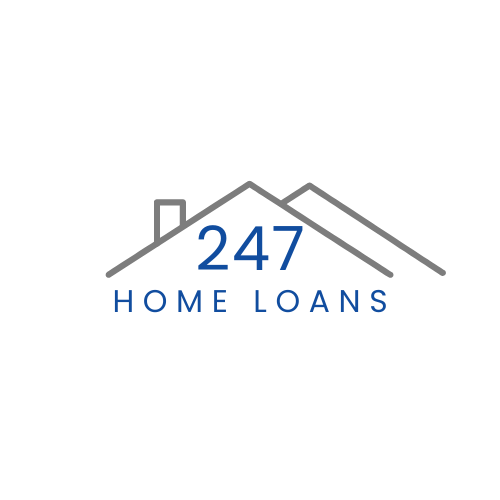
Refinance Your Mortgage Part 2
Explore Different Refinance Options
Once you’ve figured out exactly what you want to accomplish with your refinance, now you’ll want to determine which type of loan will best achieve your goals.
Explore Different Refinance Options
Once you’ve figured out exactly what you want to accomplish with your refinance, now you’ll want to determine which type of loan will best achieve your goals. Different loan features will be best for lowering your payment, taking cash out, or shortening the term of your mortgage.
Lower Your Monthly Payment
If your primary goal is to have more breathing room in your monthly budget, these are some options for lowering your monthly payment with a refinance.
Reduce Your Interest Rate
If you are trying to get the lowest interest rate possible, you may want to look at an adjustable-rate mortgage (ARM). The initial fixed-rate period of an ARM will generally have a lower rate than a standard fixed-rate loan. This is balanced by the risk that after this initial period, your rate may increase. But if you plan to sell your home or refinance again in the next five to ten years, an ARM may be a good option for you.
Be aware that refinancing with a lower interest rate doesn’t necessarily mean your monthly payments will be lower. Having a lower interest rate will mean that the interest portion of your monthly payment will be a smaller piece of the total payment – but factors such as insurance, taxes, and the term of the loan all impact how much your monthly payment will be. For example, refinancing to a shorter-term loan will often get you a lower interest rate, but the shorter term usually means higher monthly payments.
Change the Term of Your Mortgage
If your first priority is reducing your monthly payment, and you are less concerned about paying off your loan quickly, then changing the term of your mortgage may be the right choice. Refinancing to a longer-term spreads your repayment over more years, making each payment smaller. For example, if you have a 15-year term, refinancing to a 30-year term can significantly reduce your monthly payments. However, keep in mind that a longer term will mean you pay more in interest over the life of the loan.

Take Cash Out
There are quite a few loan options to choose from if your goal is to take cash out of your equity. Choosing the right one depends on your goals and specific situation.
If your goal is to take out as much cash as possible, going with a 30-year loan is likely the best option. Because you are increasing your loan amount by pulling cash out, you’ll probably get the lowest monthly payment with a 30-year term.
If you are hoping to use cash to pay off other debts, but still want stay on track to become debt free as soon as possible, a shorter term might be a better option. You can use the cash from the refinance to pay of credit cards or other debt, while still paying off your home quickly and saving on interest.
Going with a conventional loan or FHA loan for your refinance depends on the specifics of your situation. Many homeowners will find that an FHA loan is less expensive compared to a conventional loan. But if your current mortgage is conventional, it may be the case that refinancing to another conventional loan makes more sense. Talk with your lender to figure out which loan option is the most affordable choice for taking cash out in your situation.
How long do you need to own your home before refinancing?
Usually, you’ll need to own your home for at least a year before refinancing will provide a significant financial benefit.
What You Should Evaluate Before Refinancing?
Once you’ve got a clear goal in mind for your refinance, it’s time to take a look at your financial situation. You’ll want to evaluate four key factors: your monthly mortgage payments, your home’s value, your credit score, and your debt-to-income ratio.
Your Monthly Payments
Taking a close look at your monthly budget, and how your monthly mortgage payment fits into it, will help you consider your options. If you are planning to take cash out or shorten the term of your mortgage, you’ll want to look at how much higher of a monthly payment your budget can comfortably accommodate. If you are looking to lower your monthly payment, you’ll want to decide how much lower it would need to be to make a refinance worthwhile.
Your Home’s Value
Before you decide to refinance, you should do some research to get an idea of the current value of your home. Your lender can only lend you as much as the home is worth, so if your home appraises for less than you expect, it can cause trouble with refinancing. This can be particularly important if you are hoping to pull cash out or get rid of mortgage insurance.
The most accurate way to estimate the value of your home is to look at the sale prices of similar homes in your area. More recent sales will give a more accurate picture of the current market.
When you have a good idea of your home’s value, you can figure out approximately how much equity you have. Subtract the current balance remaining on your mortgage from the estimated value of the home – this will tell you what your equity is.
Shorten Your Mortgage Term
Reducing the term of your mortgage is a smart way to pay your home off more quickly and save money in the long run. Shorter-term mortgages generally have lower interest rates, and because you pay it back over fewer years, you pay much less interest over the life of the loan.
There are several loan options that can shorten the term of your loan, and deciding on the right one will depend on the specifics of your situation. If you have excellent credit a conventional loan can be a great choice. If you are an active duty military or a veteran, a VA loan will almost always be your best bet. Talk with your lender to figure out which option is most affordable for shortening the term of your loan.
Refinancing Options if You’ve Been Denied Before
Have you been denied on previous attempts to refinance?
Certain recent changes in the mortgage industry have made it easier for homeowners to qualify for refinancing. Homeowners who were denied FHA, VA, or conventional loans in the past may have a better chance of being approved, thanks to less restrictive guidelines.
If you’ve been unable to qualify for a refinance because you have little or no equity, the federal government’s Home Affordable Refinance Program (HARP) is one option that might help you out.


Why Choose Us?
Our coordinated team can get your loan processed faster than the competition – guaranteed.
Our personable and extremely knowledgeable loan officers will walk you through your first home buying experience so smoothly, your worries will be left behind.
Licensing and Approvals
247HomeLoans.net holds a Florida Mortgage Brokers license number MBR1749, in the State of Florida. NMLSR ID #1082016. 247HomeLoans.net is a full-service Mortgage Broker. We are committed to providing the highest level of customer service with an emphasis on offering our customers the best advice to save on their monthly expenditures. We are set up with over 20 wholesale lenders and banks, so we can offer both traditional and nontraditional mortgage products. Even if you have been denied by traditional banks we may be able to help you secure financing.
Corporate Office is located at:
11256 Winthrop Main St.
Riverview, FL 33578
**DISCLAIMER: Please note that interest rates, APR’s, closing cost, and monthly payment examples on this page are for illustrative purposes so that borrowers can better understand how programs work. Consumers should note that mortgage rates, APR’s, and payments will likely vary from what is listed in the examples given. Mortgage rates change frequently and not all borrowers will be eligible. Additional restrictions may apply. Please call and speak with a 247 Home Loans mortgage representative for the most up-to-date information.
© 2024 247 Home Loans
